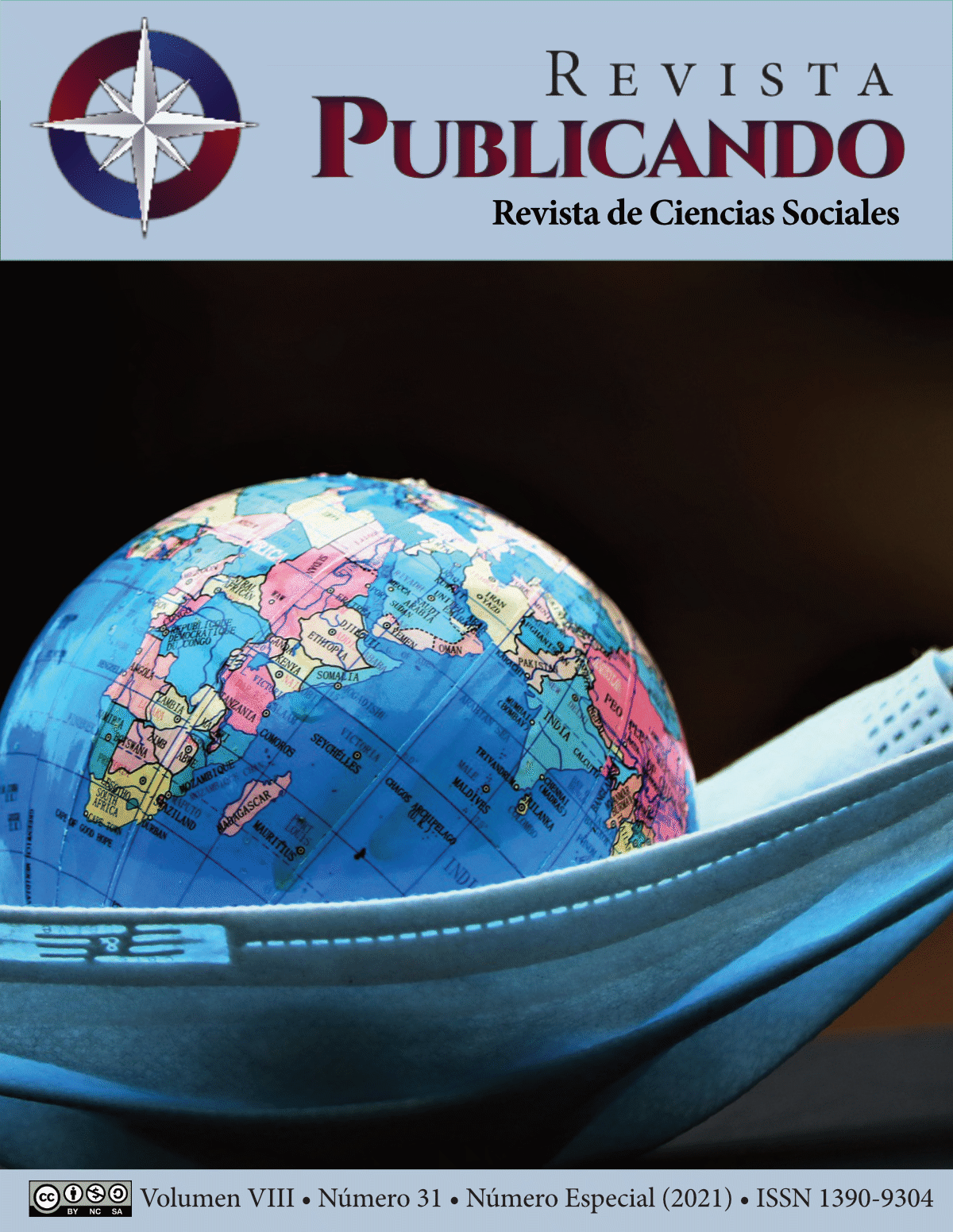Abstract
In recent months, because of the economic crisis caused by the Covid-19 virus, Ecuador was forced to have thousands of workers performing their work through teleworking or remotely. The reduction of productive activities implied the reduction of personnel in the organizations, as a counterpart to counteract unemployment, the working day was reduced. This generated an abrupt and unplanned change, marked by severe problems of access to technologies, lack of space in homes, compatibility of family responsibilities, as well as health and safety dilemmas linked to these new forms of work. This descriptive and documentary research was carried out to characterize the effects of the reduction of working hours in the Ecuadorian economy during the SARS-CoV-2 period, to determine the impact of the reduction of working hours. This allowed us to know that the mutual agreement and discipline among business actors to adjust to the new special work modalities established in the current regulations of the Organic Law of Humanitarian Support is key to reduce the unemployment rate and face the new reality.
References
Asamblea Nacional. (19 de Julio de 2020). Ley Orgánica de Apoyo Humanitario para Combatir la Crisis Sanitaria Derivada del Covid-19. Registro Oficial Suplemento 229 de 22-jun.-202. Quito, Pichincha, Ecuador: LEXISFINDER.
Banco Central del Ecuador. (7 de Agosto de 2020). Evaluación del impacto macroeconómico del covid19 en la economía ecuatoriana. Quito. Obtenido de https://www.bce.fin.ec/index.php/boletines-de-prensa-archivo/item/1375-evaluacion-del-impacto-macroeconomico-del-covid19-en-la-economia-ecuatoriana
Basantes, X. (2020). El covid-19 y las oportunidades para emprender. El Comercio. https://www.elcomercio.com/blogs/solo-para-empresas-y-emprendedores/opinion-xavier-basantes-covid19-oportunidades.html
BBC News Mundo . (2020 de Abril de 2020). Coronavirus en Ecuador - El inédito y cuestionado plan de emergencia económica del país contra la crisis del covid-19. Obtenido de https://www.bbc.com/mundo/noticias-52275464
CEPAL (2020). Coyuntura Laboral en América Latina y el Caribe. El trabajo en tiempos de pandemia: desafíos frente a la enfermedad por coronavirus (COVID-19). https://www.cepal.org/es/publicaciones/45557-coyuntura-laboral-america-latina-caribe-trabajo-tiempos-pandemia-desafios-frente
Código del Trabajo. (2015). En aplicación a la reforma establecida en la Disposición Reformatoria Primera del Código Orgánico Integral Penal (R.O. 180¬S, 10¬II¬2014), la denominación del "Código Penal" y del "Código de Procedimiento Penal" fue sustituida por "Código Orgánico Integra. Quito, Pichincha, Ecuador: LA COMISIÓN DE LEGISLACIÓN Y CODIFICACIÓN.
Herrera, S., y Briones, D. (30 de Junio de 2020). Análisis: Ley Orgánica de Apoyo Humanitario. https://www.derechoecuador.com/analisis-ley-organica-de-apoyo-humanitario-
Keynes, J. M. (2003). Teoría general de la ocupación, el interés y el dinero. México: Fondo de Cultura Economica.
Loja, R. B. (15 de Mayo de 2020). El futuro del trabajo, teletrabajo y su influencia en la relacion laboral. Derecho Ecuador. https://www.derechoecuador.com/el-futuro-del-trabajo-teletrabajo-y-su-influencia-en-la-relacion-laboral
Martínez M. C., y Diez, R. F. (2020). Cinco cambios en las relaciones laborales provocados por el coronavirus. The conversation. https://theconversation.com/cinco-cambios-en-las-relaciones-laborales-provocados-por-el-coronavirus-142023
Morocho, M. G. (9 de Junio de 2019). Jornada máxima de trabajo. Derecho Ecuador. https://www.derechoecuador.com/jornada-maxima-de-trabajo
Organización Internacional del Trabajo. (1 de Abril de 2010). “Convertirse en un hombre y no en una mera herramienta”: la OIT y las tendencias en tiempo de trabajo. https://www.ilo.org/global/publications/world-of-work-magazine/articles/ilo-in-history/WCMS_143145/lang--es/index.htm
Sornoza Parrales, D., Parrales Poveda, M. L., Sornoza Parrales, G., Cañarte Rodríguez, T., Castillo Merino, A., Guaranda Sornoza, V., & Delgado Lucas, H. (Mayo 2018). Fundamentos de emprendimiento. Alcoy: Área de Innovación y Desarrollo, S.L.
Bustamante, R. Y. S., Ruiz, G. R. S., Suarez, C. A. R., & Santiana, Z. L. T. (2020). El desempleo en el ecuador: causas y consecuencias. Polo del Conocimiento: Revista científico-profesional, 5(10), 774-797.
Zambrano, P. (28 de Agosto de 2020). El inicio de la recuperación económica tomaría entre 12 y 18 meses. (D. L. Hora, Entrevistador) Obtenido de http://www.camae.org/economia/el-inicio-de-la-recuperacion-economica-tomaria-entre-12-y-18-meses/

This work is licensed under a Creative Commons Attribution-NonCommercial-ShareAlike 4.0 International License.
Copyright (c) 2021 José Manuel Cañarte Pin, Mildred Andreina Castillo Viteri, Ericka Isabel Campuzano Jama, María Leonor Parrales Poveda




